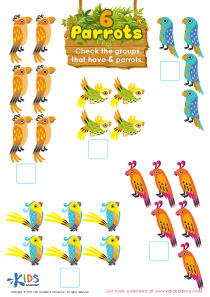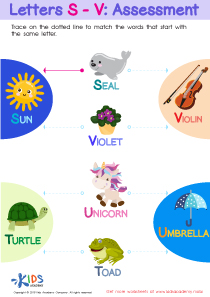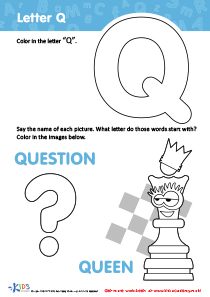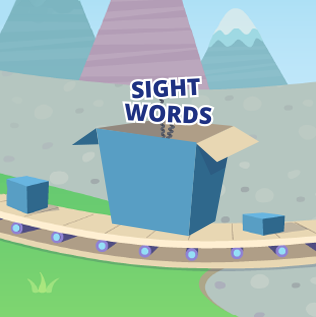English Language Arts Lessons | Answering Questions About Stories Read Aloud (Content), Grade 3
0 results
Our Answering Questions About Stories Read Aloud (Content) Lessons are designed to help Grade 3 students improve their comprehension skills. Our interactive worksheets provide hands-on opportunities for them to think critically about the content they hear, while educational videos enhance the learning experience. Our assessment quizzes ensure that they can recall important details and engage with the stories in a meaningful way. By participating in these lessons, children will be able to confidently answer questions about the content of stories read aloud to them, improving their literacy skills and overall academic performance.
Answering Questions About Stories Read Aloud (Content) Lessons can be greatly helpful to children in Grade 3 in their studies. The lessons consist of interactive worksheets and occasionally, educational videos and quizzes to help children improve their understanding of the story elements such as the characters, setting, plot, and theme.
The ability to comprehend and analyze stories is an important skill that children need to develop. These skills help them to better understand the stories they read, and also help to improve their critical thinking abilities. By mastering these skills, children can also develop stronger writing skills as they become more adept at developing and expressing their own ideas and thoughts.
The interactive worksheets provided in the Answering Questions About Stories Read Aloud (Content) Lessons help children to apply their understanding of the story elements. These worksheets usually contain questions that test comprehension of the story, such as identifying characters and their actions, the setting of the story, the main events, and the theme. With these worksheets, children will be able to practice summarizing the story and recalling important details.
The assessment quizzes that are part of the lessons are another useful tool for children. These quizzes measure their understanding of the story elements and help identify areas where they need to improve. They also provide feedback to children on their comprehension skills, which is essential in improving their knowledge retention.
The videos included in the Answering Questions About Stories Read Aloud (Content) Lessons are engaging, interactive, and designed to help children achieve the learning objectives of each lesson. These videos often feature animations and illustrations that make the learning experience more enjoyable for children.
Moreover, the Answering Questions About Stories Read Aloud (Content) Lessons are designed to be age-appropriate, and the questions are formulated in a way that children can understand. The worksheets and assessment quizzes are carefully crafted to match the language levels of Grade 3 learners, and the videos are tailored to the attention span of younger children.
In conclusion, the Answering Questions About Stories Read Aloud (Content) Lessons offer a comprehensive approach to help children in Grade 3 improve their reading comprehension skills. Through interactive worksheets, educational videos, and assessment quizzes, children can develop their understanding of story elements and apply their comprehension skills to their writing. By improving their critical thinking, children will be better equipped to tackle more challenging reading materials and excel in their studies.


















